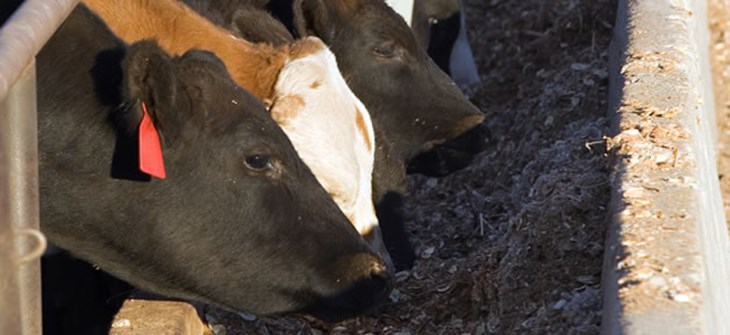Published 02/05/2014

Cut your meat and dairy intake by half and watch farming emissions plummet by 25–40 percent – this startling statistic was the key message in a recent UN report on the incredible impact such a communal dietary shift could have on the planet. Here’s the lowdown on 2014’s most exciting recipe for environmental progress.
Last week, the UN Economic Commission for Europe published a report entitled "Nitrogen on the Table", which stated that a dramatic reduction in the amount of animal protein consumed by Europeans would equate to a significant dip in the continent’s greenhouse gases (GHGs) from agriculture.
In itself, that is hardly a revelation, since the links between intensive-livestock farming and climate chaos is already well documented. But what’s so compelling about this report is its simple message – it makes the often overbearingly scientific subject of climate change and how to curb it very easy to digest.
The headline statistic is the clincher: if Europeans consumed 50 percent less meat and dairy, GHGs would fall by at least 25 percent (depending on how the freed-up land was used); it’s a stark, simple and incredibly powerful equation.
For the world (and our waistlines)
The report focuses on nitrogen emissions from livestock; 25 times more nitrogen is thought to be released into the atmosphere from beef than from cereals. And nitrous oxide is one of the most damaging GHGs – much worse than the more commonly maligned carbon dioxide – causing harmful particulate pollution and the eutrophication of rivers and oceans.
But the benefits don’t stop here. If consumers adhere to this recommended diet, they could be consuming as much as 40 percent less saturated fats than before, reducing rates of high cholesterol and obesity.
Within our reach
What makes this report so significant is that it is more realistic than it is radical. Far from promoting all-out vegetarianism (or veganism) as a solution to our ecological problems, it’s suggesting the more moderate option of "demitarianism" – also known as "flexitarianism", or part-time vegetarianism – which is an ideal route for meat-lovers with a conscience.
In fact, the report’s dietary directive sits comfortably in the new breed of "halfway" or "friendly" diets to have surfaced in recent years. From Paul McCartney’s Meat-Free Monday campaign to Mark Bittman’s VB6 diet – which advocates eating like a vegan before 6 o’clock each night – ethical eating plans that exchange rigorous denial and deprivation for a more moderate approach are far more achievable.
As Professor Mark Sutton, co-author of the report, says: "When we've seen people urged to be vegetarians I've personally seen that that can lead to a backlash because many people want to eat meat. From the environmental point of view, it's not about whether you eat meat or dairy, it's about how much."
A helping hand
That said, it would be absurd, unfair and hugely idealistic to expect consumers alone to bear full responsibility for slashing the entire continent’s meat habit in half. The truth is that if society is to make this shift en masse, it will need to be supported and incentivised to move in the right direction – and to stay on course.
And this is where the government comes in. At present, our food-production system is underpinned by misguided subsidies, taxes and policies that support intensive-farming systems, pushing down the over-the-counter price of so-called "cheap" meat. But now more than ever, we need to start seeing authentic price signals in the meat we buy; prices that reflect the "external" or "hidden" costs that we often end up paying for further down the line, when ill health and ecological damage set in.
If a fairer, more logical fiscal framework existed to undermine unsustainable farming practices and support more sustainable alternatives, price tags would start to reflect the true costs of the foods they represent.
And all at once, those truly costly staples that so many of us have come to eat with alarming regularity – meat and dairy – wouldn’t seem half as tempting as they do today. Indeed, under these circumstances, the much-needed dietary shift outlined by the UN would become an economic necessity for the average European.
